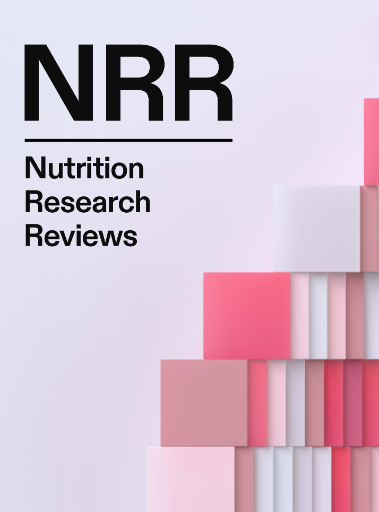限制膳食中的碳水化合物、脂肪或蛋白质对人体肠道微生物群的影响:系统综述
IF 4.5
2区 医学
Q1 NUTRITION & DIETETICS
引用次数: 0
摘要
限制膳食中的碳水化合物、脂肪和/或蛋白质通常用于减轻体重和/或治疗(代谢)疾病。由于饮食是人类肠道微生物组的关键调节因子,而肠道微生物组在健康和疾病中发挥着重要作用,因此本综述旨在概述目前关于限制宏量营养素饮食对肠道微生物组成和代谢物影响的知识。我们在多个数据库中采用了结构化检索策略。经过筛选和排除标准后,有 36 篇文章被纳入其中。只有在至少有三项独立研究支持的情况下,数据才会被纳入结果中,以提高我们结论的可靠性。低碳水化合物(能量占 30%)膳食往往会导致双歧杆菌等几种促进健康的细菌相对丰度下降,并降低粪便中的短链脂肪酸(SCFA)含量。与此相反,低脂饮食(30% 热量)增加了α多样性、粪便中的 SCFA 含量和一些有益细菌(包括普氏乳杆菌)的数量。关于低蛋白(10% 热量)膳食对肠道微生物群的影响,目前还没有足够的数据可以得出结论。虽然纳入的研究数据揭示了低脂肪饮食对人体肠道微生物群可能带来的益处和低碳水化合物饮食可能带来的弊端,但由于研究设计的多样性,很难得出确切的结论。在设计、样本处理和原始序列数据共享方面采用更统一的方法,可促进我们了解宏量营养素限制对肠道微生物群组成和与健康相关的代谢动态的影响。本系统综述在 https://www.crd.york.ac.uk/prospero 注册为 CRD42020156929。本文章由计算机程序翻译,如有差异,请以英文原文为准。
Impact of dietary carbohydrate, fat, or protein restriction on the human gut microbiome: a systematic review
Restriction of dietary carbohydrates, fat, and/or protein is often used to reduce body weight and/or treat (metabolic) diseases. Since diet is a key modulator of the human gut microbiome, which plays an important role in health and disease, this review aims to provide an overview of current knowledge of the effects of macronutrient-restricted diets on gut microbial composition and metabolites. A structured search strategy was performed in several databases. After screening for in-and exclusion criteria, 36 articles could be included. Data are included in the results only when supported by at least three independent studies to enhance the reliability of our conclusions. Low-carbohydrate (<30 energy%) diets tended to induce a decrease in the relative abundance of several health-promoting bacteria, such as Bifidobacterium, as well as a reduction in short-chain fatty acid (SCFA) levels in faeces. In contrast, low-fat diets (<30 energy%) increased alpha diversity, faecal SCFA levels, and abundance of some beneficial bacteria, including F. prausnitzii. There was insufficient data to draw conclusions concerning the effects of low-protein (<10 energy%) diets on gut microbiota. Although the data of included studies unveils possible benefits of low-fat and potential drawbacks of low-carbohydrate diets for human gut microbiota, the diversity in study designs made it difficult to draw firm conclusions. Using a more uniform methodology in design, sample processing and sharing raw sequence data could foster our understanding of the effects of macronutrient restriction on gut microbiota composition and metabolic dynamics relevant to health. This systematic review was registered at https://www.crd.york.ac.uk/prospero as CRD42020156929.
求助全文
通过发布文献求助,成功后即可免费获取论文全文。
去求助
来源期刊

Nutrition Research Reviews
医学-营养学
CiteScore
16.10
自引率
1.80%
发文量
30
期刊介绍:
Nutrition Research Reviews offers a comprehensive overview of nutritional science today. By distilling the latest research and linking it to established practice, the journal consistently delivers the widest range of in-depth articles in the field of nutritional science. It presents up-to-date, critical reviews of key topics in nutrition science advancing new concepts and hypotheses that encourage the exchange of fundamental ideas on nutritional well-being in both humans and animals.
 求助内容:
求助内容: 应助结果提醒方式:
应助结果提醒方式:


